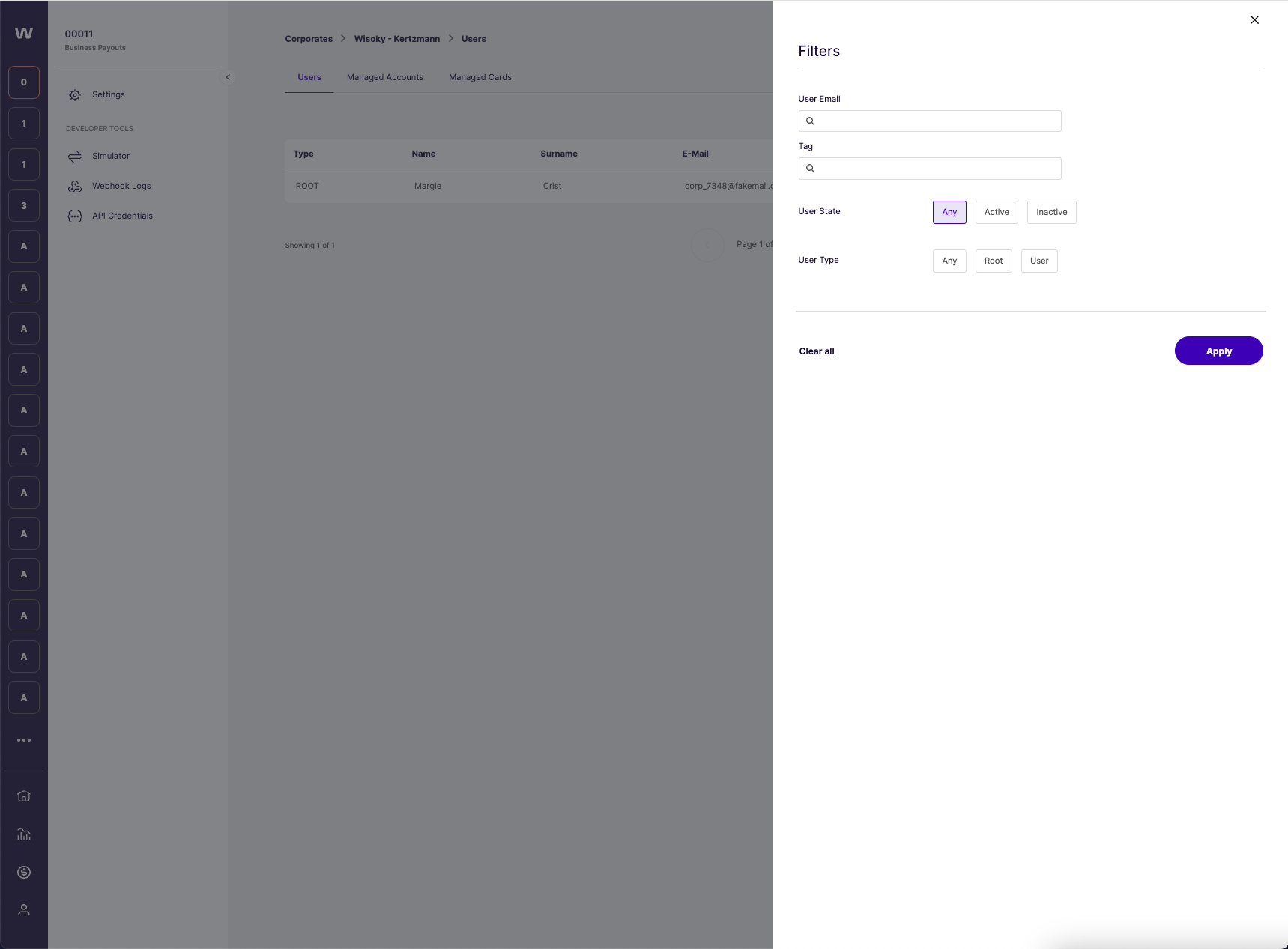New Data Insights
We provide Embedders with data reports and dashboards in the Embedder Portal, collectively referred to as Data Insights. With this release we’re launching a significant wave of improvements and additions across Data Insights.
Key changes include:
-
dashboards have a fresh new look, with charts split across focused tabs; tabs have different purposes, including an overview, analytical tabs and more detailed tabs with transactional information
-
all charts within Data Insights (except for KPIs and tables) now offer an interactive drill-down functionality, allowing Embedder staff a way to see a detailed view of a particular bar/segment
-
an informational tooltip has been introduced within each chart, providing definitions and granularity details pertaining to that chart
-
filters have been enhanced to offer a drop-down menu, making it easier to find what you are searching for
-
improvements to performance
Detailed documentation around Data Insights is now available within the knowledge base section of the Weavr support portal here. This is also linked via the Help button within the Embedder Portal.
We’d like to hear your feedback about Data Insights. Please speak with your Weavr contacts to share your ideas.
Data Insights enhancement - reporting on Authorisations in mobile wallets
We have introduced a new Authorisation Details tab within the XPay Enabled Cards dashboard (formerly known as the Apple Pay/Google Pay Overview dashboard).
This new tab will help Embedder programme operations and support staff identify whether a card payment Authorisation has been done with a card that is provisioned in Apple Pay or Google Pay mobile wallets. The detailed view includes various details such as merchant details, device details, and instrument amounts.
New error message if new Step-Up is retried too fast after initial attempt
We are always looking to improve the error messages returned by the Weavr APIs. Within the Step-Up flow, if the Embedder’s application attempts to start a new Step-Up for a user before the first one has been completed or timed out, we have replaced the error “400 Invalid_request” with the more specific “409 Retry_in_15sec”.
The flow works like this:
- Embedder’s application calls Weavr API to start Step-Up flow
- Weavr awaits a response showing the user has not completed the challenge
- Before any response it received, the Embedder’s application begins a new Step-Up attempt within 15 seconds of the first
- This results in the error “409 Retry_in_15sec”
If a new Step-Up is started after 15 seconds from the first attempt, then the first attempt will be invalidated and the user will need to respond to the new challenge.
In general, Embedders must provide reasonable times for users to complete multifactor authentication challenges and not make repeat requests on the API for Step-Up in a short space of time.
New error message for a step-up called twice
We have improved the response for the scenario when the Step-up verify endpoint was called twice. If by mistake, you were calling twice the Verify endpoint for the same token that has been already stepped-up, we returned error State_invalid. In order to become more clear on the situation, for the above scenario we are changing the error from State_invalid to Already_verified. More details on step-up authentication is available here.
Ensuring emails are unique in your programme
In some programmes, Embedders have encountered problems when legacy sign up flows allowed the same email to be used for a Consumer Identity at the same time as a Corporate Identity. In these types of programme we are now enforcing that the email address of a user has to be unique at the programme level.
Custom tags for Authorised Users
Authorised Users can multiply in programmes with lots of cardholders. As an Embedder you’ll want to manage interactions and data around Authorised Users, so we’ve introduced an optional tag field which allows you to store custom information against those records.
The Authorised User Tag can be included in API calls as follows:
POST/usersGET/usersPATCH/users{user_id}
The tag is available when filtering Authorised Users in the Embedder Portal:
